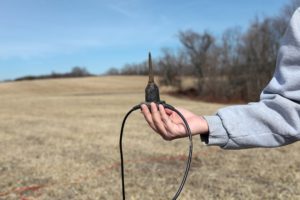All Categories
Featured
Table of Contents
Geophysicist Job Description in Carramar Oz 2021
Connect with MBA programs looking for prospects like you. Study. Link with master's programs around the nation to get an edge over the competitors.

A geophysicist studies various aspects of the earth. Watch a video to discover what a geophysicist: Geophysicists should earn a minimum of a bachelor's degree; however, this is for an entry-level position.
If you desire study you need to pursue a Ph. D. Undergraduate coursework generally consists of geology, mathematics, ecological science, or physics. Advanced degrees need more particular research studies in the specialized of choice. Areas can consist of oceanography, climatic physics, climatology, planetary, petroleum, ecological, and mining. Task potential customers are greater if you have a strong background in computer science or technology.
Geophysicist Job Profile in The Vines Australia 2021
Access to these chances may be restricted depending upon where you live; nevertheless, internships or summertime programs with geophysical companies, university geophysics department, or the U.S. Geological Survey can be choices. You can discover a list of a list of chances on the United States Geological Survey (USGS) websites' Path Programs tab (opens in another link).
Geophysicists also work with computer systems while looking into, so computer courses can also be handy, as pointed out earlier in this article. Numerous geophysicists specialize in an area of geophysics.
A geophysicist's tasks can consist of determining, tracking, and documenting data from numerous physical residential or commercial properties on earth. Geophysicists often have to take a trip worldwide to analyze geological events that have occurred or may have been forecasted.
What Does A Geophysical Data Technician Do? in Mariginup Australia 2022
For example, Jay Wellik, a geophysicist, studies volcanos. His location of knowledge in geophysics is looking into why volcanos emerge and what indicators there might be that an eruption might happen. He tracks seismic activity and then follows what takes place in the past, throughout, and after a volcano appears. Geophysicists typically work full-time hours; nevertheless, they frequently work irregular hours, as pointed out formerly.

You can find extra information about Geophysicists along with additional academic products on the U.S. Geological Survey site (links open in a brand-new window). Laura Stern, of the U.S. Geological Study at the Gas Hydrates Lab in Menlo Park, California: We make a variety of different hydrates in the laboratory.
We also make carbon dioxide hydrate, ethane hydrate, lp, a number of different structures. It's about 100 degrees cooler than the temperature at which these hydrate samples would dissociate, when they would disintegrate to ice plus gas on the tabletop.
Careers In Geology And Geophysics in Kingsley Oz 2021
They look like snow, it looks like compacted snow however honestly, it does contain gas inside. It's going back to ice plus gas and then as the ice would melt as it continues to warm, it will end up being water plus gas.
My name is Steve Kirby, I'm a Geophysicist here at the U.S. Geological Survey in Menlo Park. I work with Laura Stern who is likewise a Geophysicist in this lab that adheres towards the examination of planetary ices and gas hydrates. Gas hydrates in nature take place in very remote locations and they are extremely complex with the interactions and conditions that they form under and samples that are brought up are under some sort of alternation or decomposition.
This is an unusual lab and there are only a handful of them worldwide and we are very fortunate to be here at the Geological Study and to have the chance of dealing with them. Bureau of Labor Data, U.S. Department of Labor, Occupational Outlook Handbook, Geoscientists. National Center for O * Internet Advancement.
What Does A Geoscientist Do? in Ardross Aus 2022
00. O * Internet On, Line. This video was produced by the government for the U.S. Geological Study. The USGS Gas Hydrates Lab is moneyed by the Department of Energy and the USGS Gas Hydrates Project.
Latest Posts
Geophysical Survey Methods in Western Australia 2021
Geophysicist Salary in Wembley Downs Aus 2021
Bsc Geophysics in Safety Bay WA 2023